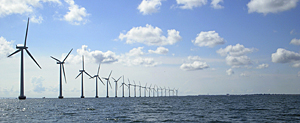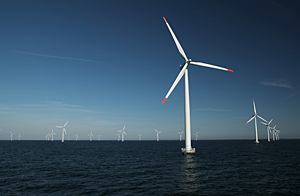- Rozovsky wins prestigious NSF Early Career Award
- UD students meet alumni, experience 'closing bell' at NYSE
- Newark Police seek assistance in identifying suspects in robbery
- Rivlin says bipartisan budget action, stronger budget rules key to reversing debt
- Stink bugs shouldn't pose problem until late summer
- Gao to honor Placido Domingo in Washington performance
- Adopt-A-Highway project keeps Lewes road clean
- WVUD's Radiothon fundraiser runs April 1-10
- W.D. Snodgrass Symposium to honor Pulitzer winner
- New guide helps cancer patients manage symptoms
- UD in the News, March 25, 2011
- For the Record, March 25, 2011
- Public opinion expert discusses world views of U.S. in Global Agenda series
- Congressional delegation, dean laud Center for Community Research and Service program
- Center for Political Communication sets symposium on politics, entertainment
- Students work to raise funds, awareness of domestic violence
- Equestrian team wins regional championship in Western riding
- Markell, Harker stress importance of agriculture to Delaware's economy
- Carol A. Ammon MBA Case Competition winners announced
- Prof presents blood-clotting studies at Gordon Research Conference
- Sexual Assault Awareness Month events, programs announced
- Stay connected with Sea Grant, CEOE e-newsletter
- A message to UD regarding the tragedy in Japan
- More News >>
- March 31-May 14: REP stages Neil Simon's 'The Good Doctor'
- April 2: Newark plans annual 'wine and dine'
- April 5: Expert perspective on U.S. health care
- April 5: Comedian Ace Guillen to visit Scrounge
- April 6, May 4: School of Nursing sponsors research lecture series
- April 6-May 4: Confucius Institute presents Chinese Film Series on Wednesdays
- April 6: IPCC's Pachauri to discuss sustainable development in DENIN Dialogue Series
- April 7: 'WVUDstock' radiothon concert announced
- April 8: English Language Institute presents 'Arts in Translation'
- April 9: Green and Healthy Living Expo planned at The Bob
- April 9: Center for Political Communication to host Onion editor
- April 10: Alumni Easter Egg-stravaganza planned
- April 11: CDS session to focus on visual assistive technologies
- April 12: T.J. Stiles to speak at UDLA annual dinner
- April 15, 16: Annual UD push lawnmower tune-up scheduled
- April 15, 16: Master Players series presents iMusic 4, China Magpie
- April 15, 16: Delaware Symphony, UD chorus to perform Mahler work
- April 18: Former NFL Coach Bill Cowher featured in UD Speaks
- April 21-24: Sesame Street Live brings Elmo and friends to The Bob
- April 30: Save the date for Ag Day 2011 at UD
- April 30: Symposium to consider 'Frontiers at the Chemistry-Biology Interface'
- April 30-May 1: Relay for Life set at Delaware Field House
- May 4: Delaware Membrane Protein Symposium announced
- May 5: Northwestern University's Leon Keer to deliver Kerr lecture
- May 7: Women's volleyball team to host second annual Spring Fling
- Through May 3: SPPA announces speakers for 10th annual lecture series
- Through May 4: Global Agenda sees U.S. through others' eyes; World Bank president to speak
- Through May 4: 'Research on Race, Ethnicity, Culture' topic of series
- Through May 9: Black American Studies announces lecture series
- Through May 11: 'Challenges in Jewish Culture' lecture series announced
- Through May 11: Area Studies research featured in speaker series
- Through June 5: 'Andy Warhol: Behind the Camera' on view in Old College Gallery
- Through July 15: 'Bodyscapes' on view at Mechanical Hall Gallery
- More What's Happening >>
- UD calendar >>
- Middle States evaluation team on campus April 5
- Phipps named HR Liaison of the Quarter
- Senior wins iPad for participating in assessment study
- April 19: Procurement Services schedules information sessions
- UD Bookstore announces spring break hours
- HealthyU Wellness Program encourages employees to 'Step into Spring'
- April 8-29: Faculty roundtable series considers student engagement
- GRE is changing; learn more at April 15 info session
- April 30: UD Evening with Blue Rocks set for employees
- Morris Library to be open 24/7 during final exams
- More Campus FYI >>
4:22 p.m., June 11, 2009----Amongst some business suit-clad senators atop Capitol Hill Tuesday, June 9, discussion flowed around the economic possibilities presented by places where bathing suits are work attire.
A U.S. Senate Committee on Commerce, Science and Transportation subcommittee hearing on the “Blue Economy” discussed the role of the oceans in the nation's economic future. University of Delaware associate professor of marine policy, Willett Kempton, was a featured witness.
Subcommittee Chair Sen. Maria Cantwell, D-Wash., defined the blue economy as “the jobs and economic opportunities that emerge from our oceans, Great Lakes and coastal resources.” She noted it provides more than 50 million U.S. jobs and contributes more than 60 percent of the U.S. Gross Domestic Product.
The hearing dealt with the considerations ranging from commercial fishing to the health of the oceans to the vibrancy of coastal cities and towns.
Kempton's testimony focused on offshore wind power and what he believes it could add to the economy. According to Kempton, who is often cited as an expert in the field, offshore wind power is the United States' largest ocean energy source, even in comparison to offshore oil resources. His research found offshore oil resources would only produce half the energy offshore wind could generate.
He also spoke about offshore wind power's potential drawbacks, including the number of birds killed by turbines and their impact on prized ocean views.
“You have to really look at the balance -- it's the positive impacts minus the negative impacts,” he said, arguing the positives outweigh the negatives.
Sen. Olympia Snowe, R-Maine, a 2008 recipient of an honorary doctorate from UD, endorsed offshore wind power, offering up her own state's coastline as an initial site. Currently wind power in the U.S. is generated only by onshore turbines.
“We have to do everything we can to preserve the way of life on our coastal communities, the ocean and what they represent for energy purposes, for climate change, for our ecosystems, for our habitats,” she said. “People just truly don't understand the dimensions to which it contributes to this nation and for generations to come.”
A webcast of the hearing is available online.




